Column

Hasan Hafizur Rahman Pluralistic Evaluation, Edited by Afzalul Bashar, Esha Hasan and Mohammad Zillur Rahman
I had studied archeology and ancient history of India at Dhaka University hoping to join as a teacher in the department. I always wanted to be a history teacher from my school days. Such an odd ambition for a kid to have yet that's all I cared about. When I was giving my IA from Dhaka College, I found most subjects boring but studied history seriously and did very well in it.
I applied only to the History department at Dhaka university -1972- and was hit by panic of course immediately afterwards. Suppose I didn't get admission, then there would be no University education in my life. Luckily, I did manage to get in and the rest is well, history. My ambitions were no secret, my results justified it and it was openly discussed. And then suddenly the final exams were over and suddenly I needed a job and suddenly life had become a whole new ball game.
It was my friend Morshed Shafiul Hasan - a student of the Bangla department- who first informed me of the History Project. Apparently, several others had got in and he felt that as a History Department student I stood a chance. It's from him that I heard that poet Hasan Hafizur Rahman was heading the History Project.
HHR was then known not only for his literary writings but as the Editor of Dainik Bangla who had brought out a telegram when police firings had killed two young activists of the Russia supporting Communist Party of Bangladesh. It had led to his dismissal from his job but he was sent abroad as a diplomat to the Moscow Embassy. Clearly, those were softer days compared to what could happen now to such beings.
Two days later, I was standing in Hasan Hafizur Rahman's office accompanied by journalist late Mahfizullah bhai who was pleading on my behalf for a job. Hasan bhai initially resisted but gave in and I was in from the next day. My entire life was about to change forever. Wish I had remembered the date.
Remembering the bonding
Yes, I was a historian-to-be who had to grow up very quickly and learnt to do both project management and research and he was the custodian of the project, the leader who took his responsibility very seriously but our common space was literature. We bonded over that.
Hasan bhai was very happy to chat about literature with me. I was a voracious reader and we had many books in common that we both had read and enjoyed. And of course, he soon found out I had read his stuff as well and I would discuss them with him. I became his "listener" so to speak.
I remember one day, as he came into the office with a very serious face and asked me inside his room. I was quite taken aback, no idea what was on. I was even more puzzled when he asked me to lock the door. It wasn't scary but I was very apprehensive of some bad news or something like that.
He then sat down in his chair and asked me to sit down. Then he bought out a poem and said, "I wrote this last night. Please tell me what you think." Talk about an anti-climax.
Soon it had become a routine and I had become his "listener" and would even suggest changes. Now I realize where my status had become - a green from the university listening to one of the most eminent poets of Bangladesh as his poetry disciple.
Our last meeting
Hasan bhai fell ill in 1981 and Dhaka just couldn't take him to better health. After many efforts by his close ones, an opportunity to go to Moscow for better treatment was organized. A key person in the process was Begum Sufia Kamal, whose kindness and generosity is worth remembering. I will be honest, there was much less enthusiasm to send him abroad than I expected from many. I felt he didn't seem to matter much as a person of eminence anymore.
We all from the office went to see him for a goodbye visit at his residence where he was ailing and waiting for his flight. Several other guests were there and we found him in bed, reclining on a large pillow with a few advanced copies of the first few volumes of the 1971 documents in book form. We were there to say bon voyage and no more.
Moscow was a city dear to him and in 1983 infinitely better than what Dhaka could offer in terms of treatment. We were to be honest, relieved that he was going. And then it was time to say goodbye.
All these memories came to me on the 25th of October as we sat in the Press Club auditorium to discuss the book published on him. I just kept remembering the last letter he wrote to me from Moscow saying I should work hard to finish the work on the project.
Forty years later I am still trying to do what he had asked me to.









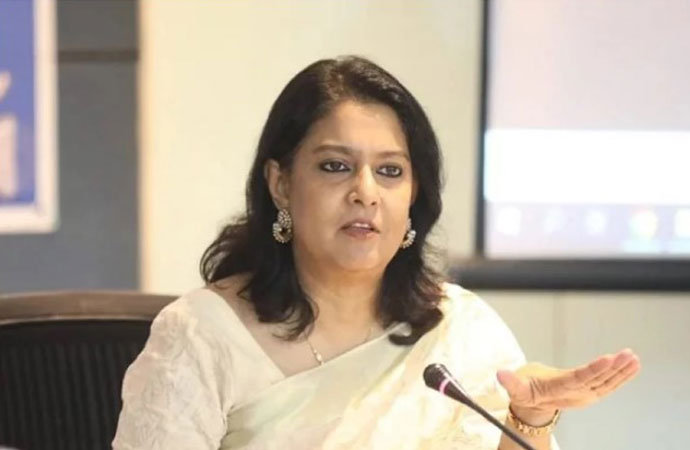
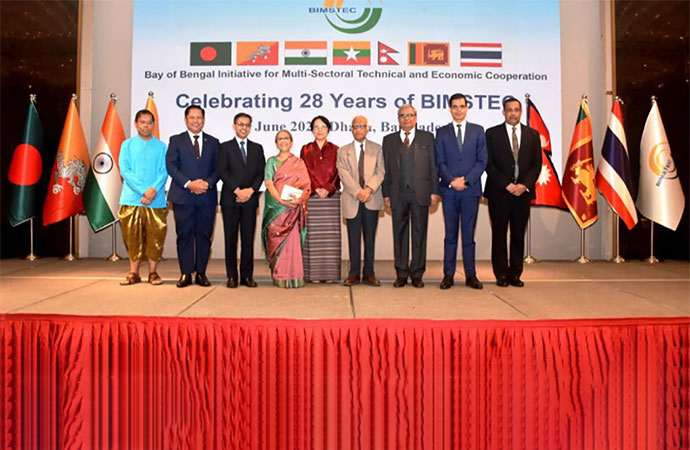








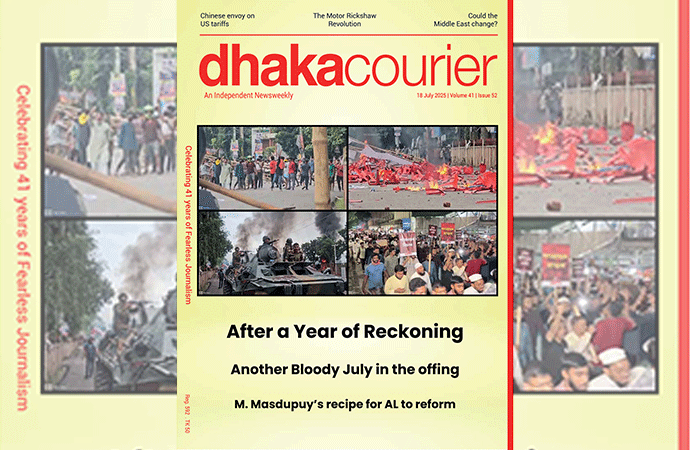
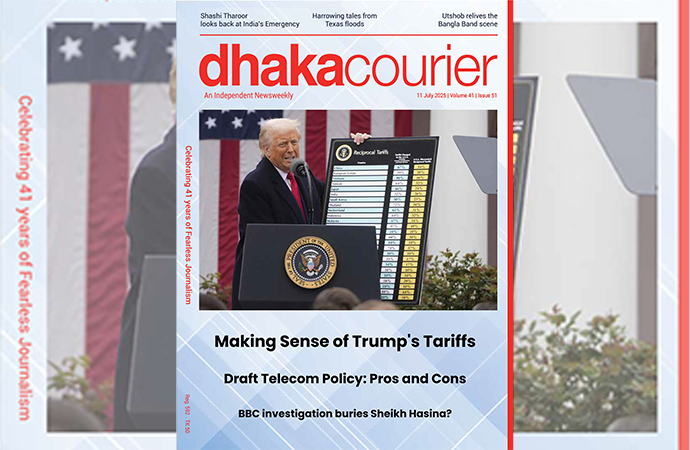
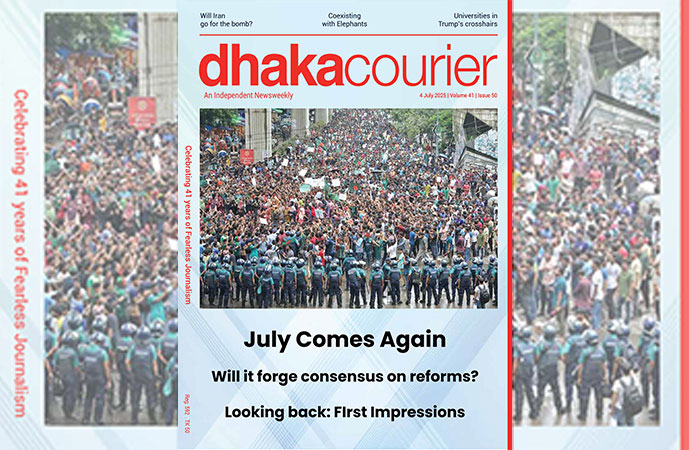
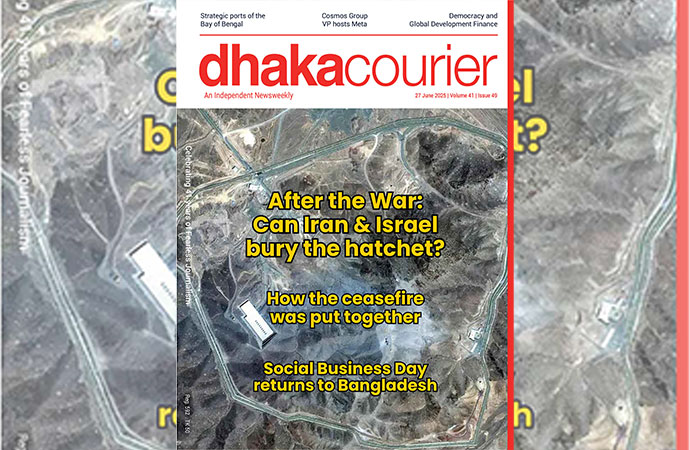
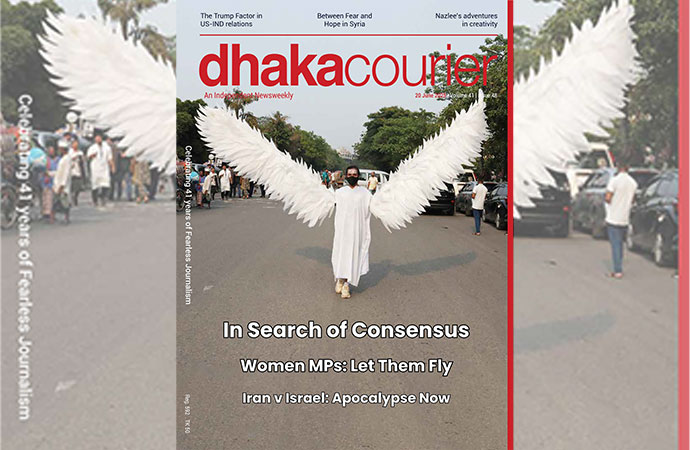
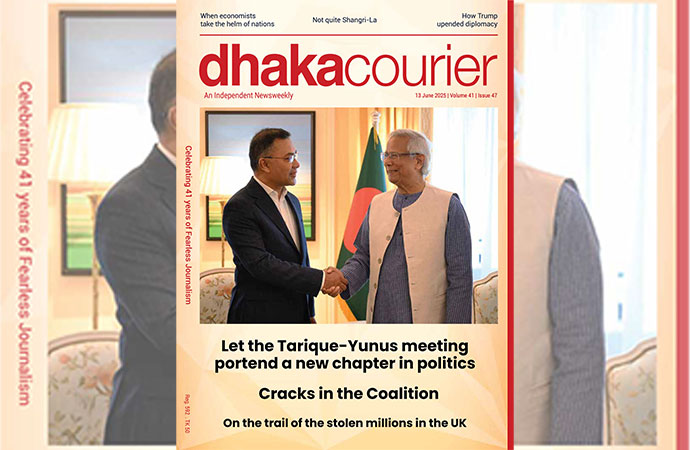
Leave a Comment
Recent Posts
The Northeastern Question
When secessionist movements sprang up across the Eastern European part ...
Trump’s Tariff: How far should ...
Will Bangladesh manage to get a last minute reprieve on its 'Trump tar ...
Rivers, Peaks, and Expressions – My Experience at th ..
What lies behind the alarming spike in violence agai ..
A Himalayan choice
Twenty Palestinians were killed at a food distributi ..